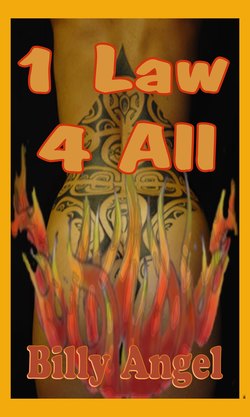Читать книгу 1 Law 4 All - Billy Angel - Страница 7
На сайте Литреса книга снята с продажи.
Chapter 2 Kitiona and Her Father
ОглавлениеSeveral years before entering Original Joe's, Kitiona Tuafa had been a senior at Manu’s High School in American Samoa. There as a naturally, spirited leader she was elected senior class president.
Kitiona had tamed her rebellious nature by joining the high school debate team. She cherished debating. It controlled her defiant spirit fueled by the cultural challenges. Her generation respected their elders but wanted to find their own way in today's world. Debate helped her gain respect within the community council. And ultimately helped her see beyond her cultural restrictions.
As class president she was given more societal leeway to champion causes dear to her heart. She questioned and pushed her way to the edge of her Samoan cultural roots.
Her favorite cause questioned the ‘Taupou System’ of institutionalized virginity. It was highly regarded in American Samoa culture. Her stance was slightly to the left of Margaret Sanger’s. Her intentions were to begin public conversations challenging the system. In Kitiona’s opinion, the established tradition shouldn’t be blindly accepted by the people.
Kitiona’s father, Patea, was highly respected in the Samoan community. His ancestors ruled Samoa until the modern times. He still was regarded as royalty without any of the trappings. He had been a star rugby player as a youth. The connections to royalty along with his sports popularity positioned him as the most important community leader.
Kitiona worshiped her father. Being the first of two children, Kitiona was the apple of Patea’s eye. He had pampered her from the first day he laid eyes on her.
Patea held his first born to high standards. But Patea projected a kind of softness towards Kitiona that was not evident with her brother. Even her seasons of rebellion couldn’t dissuade his love.
Within their family structure, her brother looked up to Kitiona for guidance. He imitated her down to the swagger of her walk and her confident stare.
Their family was one of many that depended upon the Motorhead Brake Adhesive Factory for employment. Motorhead processed asbestos into the glue that holds brake lining materials together.
Patea was the supervisor in charge of production. Because of Kitiona’s insistence, Patea began questioning how the raw materials were being handled.
As a high school junior, Kitiona had researched the effects of asbestos on humans for an English project. She was horrified to read about Mesothelioma, just one of the effects of breathing asbestos. Her research included other disorders like lung cancer and asbestosis.
Kitiona insisted that her father read her paper. He read the paper. He didn’t seem as upset as she wanted him to be. She took him aside and read the paper to him. She underscored the possibly of getting one of these terrible asbestos disorders. Her final plea moved him. “Daddy, I don’t want you to die before you see your grandkids.”
After Kitiona’s appeal, he reread the research paper for a third time. That’s when Patea’s protective instincts kicked in and began working overtime. He envisioned the dusty factory floor tainted with asbestos. Immediately, he became concerned for his health and the health of all the other employees.
When Patea tried to reason with management about the potential asbestos problem in the factory, he was put on hold. Month after month the same working conditions persisted. He regularly talked with Tom Jenkins, Motorhead’s plant manager.
Jenkins knew of the asbestos threat before he took the job. He saw moving to American Samoa and taking the plant manager’s position as a corporate stepping stone. His angled to move up the ladder into an upper management position.
Each time Jenkins perused Patea’s concerns with Thomas Rider, manager of Amerastar’s Asian-Pacific division, he was instructed to hold down the fort. Rider discussed the matter with Chase Freeze, the vice-president of the Asian-Pacific division. And each time Freeze in turn consulted with Simon Wooster, Amerastar’s CEO.
Wooster stated that the Motorhead’s profits must be maintained at all costs. That ended all conversations between him and Freeze. Wooster’s reasons were a well kept secret between him and his wife, Senator Bonni Giardina.
Jenkins was instructed to tell Patea that the final decision is in the hands of upper management. They were investigating the matter.
Jenkins stalled for many months. Nothing changed at the factory. Dust laced with asbestos still hung in the air.
Patea finally organized worker meetings. A consensus began to develop that the workers should unionize. They rationalized that as a union, they could bargain for safe and healthy ways to handle the raw materials used in making the brake lining glue. The material they worried most about was asbestos.
As a union structure began to take shape, Jenkins updated Rider at Amerastar corporate headquarters in San Francisco. Jenkins was instructed to discourage the workers from forming a union. He was told that if the workers unionize, several high paying management positions will be cut to insure the company’s profitability. Rider told Jenkins, his position would be the first to go. Rider affirmed that this mandate came straight from the top.
